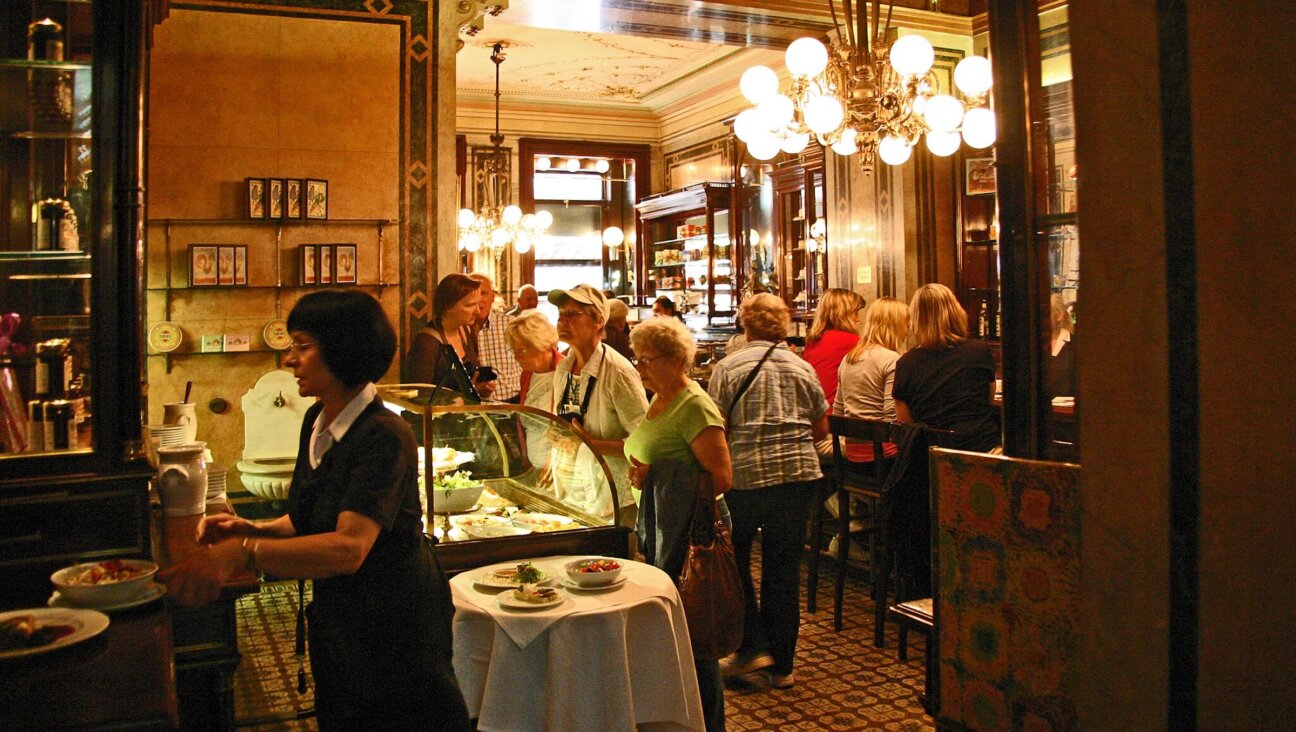Food for All (Thirteen of Our) Moods
In the intensely interpersonal setting of both college and Urban Adamah, my greatest learning experiences have been related to teamwork, negotiation and group decision-making

Graphic by Angelie Zaslavsky
Before I went to college, I had a lot of ideas about what it would be like. I would make the closest friends of my life with a group of diverse yet like-minded people, and we would live together, cozy and joyful, while learning about ourselves and the subjects that interested us the most. At the start of my semester off from Tufts University this spring, I could look back on the past two-and-a-half years of college with satisfaction about the relationships I had built and with pride in what I had discovered about myself and the world. But, as good as it has been, I was still waiting for that golden feeling I imagined would happen when I found my place and my people, and my mind and body were alive with taking it all in. I got the feeling that many of my peers felt similarly.
Then, this spring, I participated in Urban Adamah in Berkeley, CA. Urban Adamah is “a three-month residential fellowship that integrates organic farming, social justice and progressive Jewish living and learning.” It was everything that I, the people in my life, and my college itself had claimed that college should be: meaningful, experiential learning, communal living, and warm, vibrant friendships that created space for resolving group conflicts to bring us all closer.
Our house at Urban Adamah became a home not because of how many belongings I had there or how clean or decorated it was, but because of the deep connections between the people in it and the powerful experiences we were sharing. We came together every night for a delicious dinner made from scratch by dear friends, all helped with home improvement projects and cleaning, and shared in the joys and hardships of living so intimately with thirteen people.
Of course, the most meaningful part of any rewarding experience is its challenges. In the intensely interpersonal setting of both college and Urban Adamah, my greatest learning experiences have been related to teamwork, negotiation and group decision-making. At Urban Adamah, our continuous discussions around household food shopping taught me how important it is to keep sight of the shared goal during a group discussion, and reminded me how surprisingly many different, equally valid opinions can exist within one group of smart, like-minded people.
We made our household food purchasing decisions at weekly meetings where people expressed their opinions in a consensus-based decision-making model. The facilitator, who rotated every week, would moderate the conversation to keep us on topic and make sure everyone was heard. When someone made a proposal, we voted with the option of saying “yes,” “no,” “abstain,” or indicating that they weren’t entirely comfortable with the proposal but weren’t going to block its passage. A proposal could only pass unanimously, without any “no’s.” The two food shoppers, who rotated every three weeks, would then be responsible for implementing those decisions.
The debate around food purchasing essentially came down to quantity versus quality. Given our sufficient but limited budget, we could buy an abundance of food from cheaper sources with questionable environmental, human rights, and animal rights practices, or purchase less food from costlier sources that whose ethical policies we wanted to support.
Of course, it was more nuanced than that, because everyone’s idea of a “good” source varied based on their social justice priorities. A product’s environmental impact doesn’t always match the human/animal practices associated with it. I remember standing in the Berkeley Bowl supermarket as a food shopper looking back and forth between the organic bananas and the fair trade bananas for at least a minute, trying to remember what we had discussed, before buying some of both to hedge my bets.
To complicate it further, different kinds of food are priced radically differently – for example, $10 will go much further on apples or bread than it will on cheese or ice cream. This meant that accommodating individuals’ dietary habits – from meat-lover to former vegan, lactose-intolerant to lactose-loving – raised questions about how much of our budget should be spent in which sections of the supermarket. There was a week when a lack of eggs was the single biggest source of friction in the household, until we found organic eggs in bulk at Costco.
This could have led to some morale-shaking conflict. Food forms a central part of our lives, so few things are more stressful than feeling a scarcity of food, and few things are more toxic to a community than that stress. Thankfully, because of an overwhelming desire to stay connected and a clear decision-making process, we manage to navigate food shopping without starvation or bankruptcy.
Leah Lazer is a Connecticut native, a rising senior at Tufts University majoring in Food System Studies, and an alumna of Urban Adamah.
















